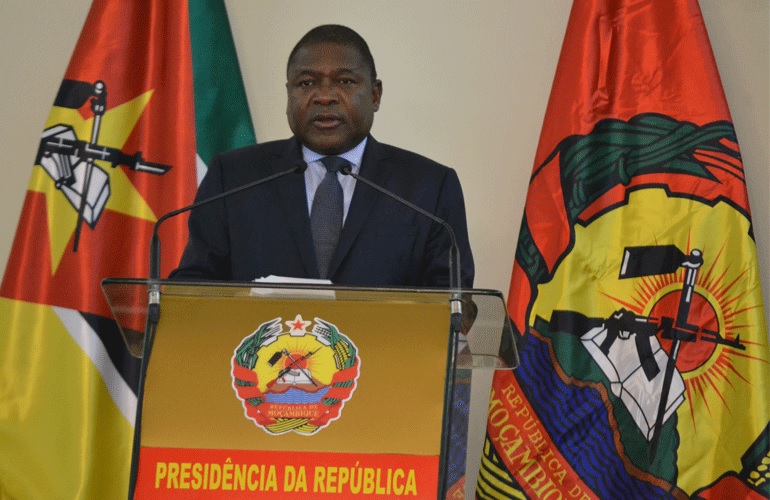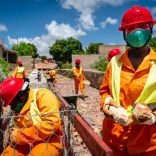Mozambique: Catholic Church proposes national reforms for peace, inclusion, and good governance
Covid-19. Mozambique extends state of emergency for another 30 days

Photo: Noticias
President of Mozambique Filipe Nyusi yesterday announced the second extension of the state of emergency in the country designed to prevent the spread of Covid-19.
“What I have to say is difficult,” the head of state said in a communication to the nation.
“But in this context, attentive to the real situation in the country and properly advised, I have decided to extend the state of emergency for another 30 days [until June 29].”
The extension was sent to the Assembly of the Republic for ratification yesterday, President Nyusi added.
The head of state justified the measure with the increase in the number of infections and the spread of the new coronavirus to all provinces of the country, also noting that the country has entered on a community transmission phase.
Mozambique on Thursday recorded the second death from Covid-19, reaching a cumulative total of 233 cases, with 82 recovered.
The state of emergency was enacted on April 1 and extended for the first time in late April, until May 30.
The country has been in a state of emergency since April 1st, with amusement and leisure facilities closed, all types of events and meetings prohibited, and the public recommended to stay at home unless they have compelling reasons to go out, such as work or essential errands.
Capacity on public transport is limited and the use of masks mandatory. Schools are closed and the issuing of entry visas has been suspended.
“Failure to comply with the [prevention] measures individually and collectively has contributed to the spread of the pandemic in the country,” Filipe Nyusi said yesterday.
The disease “is affecting all age groups, with a higher incidence among young people aged 15 to 40 years, with a threat to our future as a nation”, the president stressed.
Filipe Nyusi said that the measures envisaged in the state of emergency are intended to respond to the challenge of containing the virus and minimising the economic and social damage that mandatory confinement would cause.
“We are aware of the harshness” of the measures to contain the new coronavirus, he stressed, pointing to a contraction of the Mozambican economy of 3.3% this year and highlighting the reduction in employment.
Filipe Nyusi stressed that the sacrifices “have not been in vain”, and that there had been some victories in the fight against the pandemic, namely with regard to the use of masks, greater border control and respect for operating restrictions.
Compliance with restrictions imposed during the state of emergency in the coming weeks will be instrumental in controlling the spread of Covid-19, flattening the infection curve and avoiding more severe restrictions, such as mandatory confinement, he concluded.
Globally, according to a report by the AFP news agency, the Covid-19 pandemic has already claimed more than 355,000 lives and infected more than 5.7 million people in 196 countries and territories.
More than 2.2 million patients are considered cured. The disease is transmitted by a new coronavirus detected in late December in Wuhan, a city in central China.












Leave a Reply
Be the First to Comment!
You must be logged in to post a comment.
You must be logged in to post a comment.